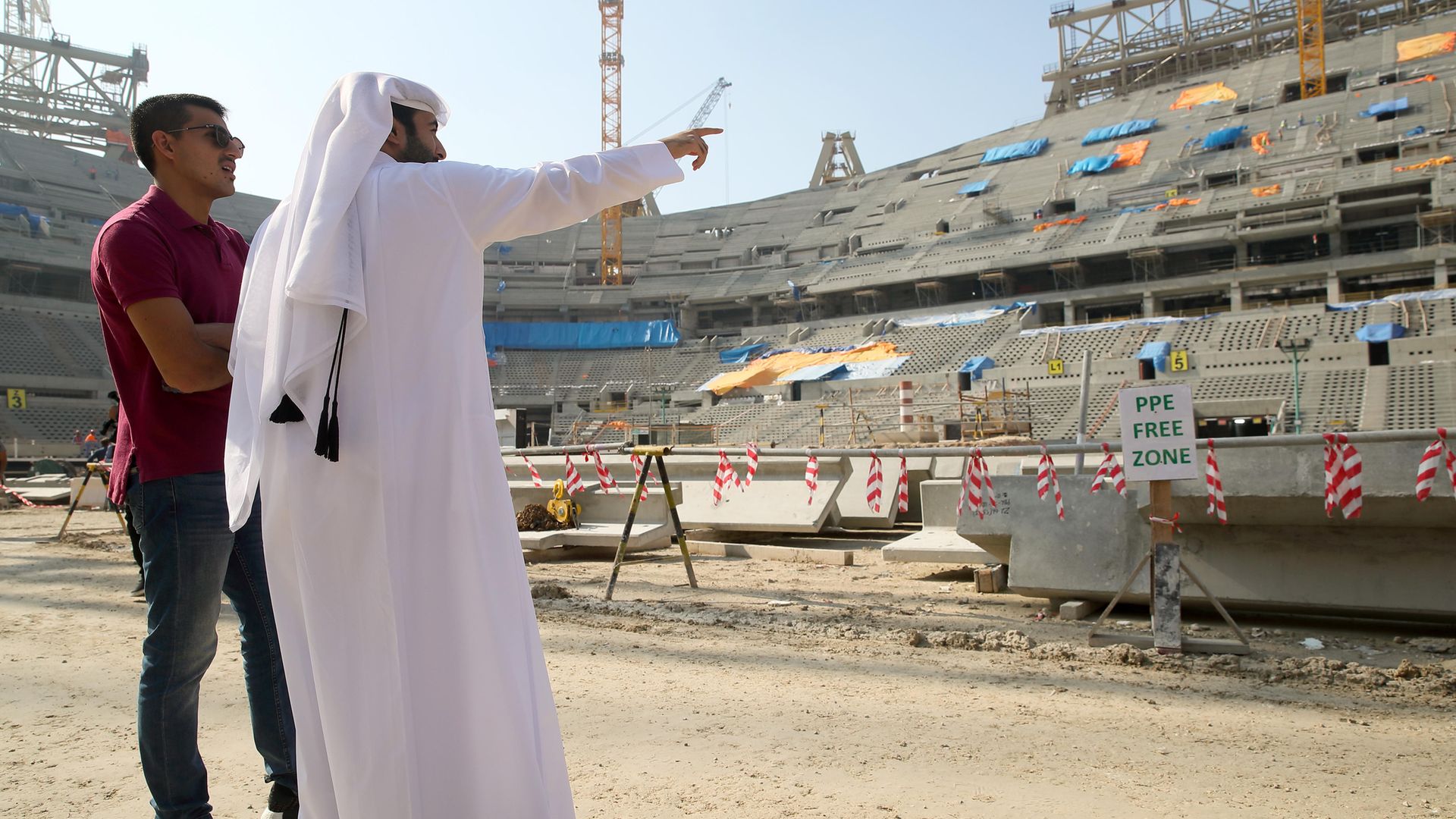
The world is on its knees in a pandemic that is close now to killing three million people. Yet the games go on, albeit as a ghostly, ghastly version of sport in stadiums without spectators.
For a year, club football has soldiered on while communities have closed around them. In Europe we have the scarcely believable situation of Champions League and Uefa Europa League home and away legs being played in so-called neutral venues. Bizarrely, those places include Hungary, where the Covid situation was far worse than in the countries the clubs sent there had come from.
Even this week, UEFA, the European football authority, was clinging to the notion that their delayed Euro 2020 will be played in 12 different cities in 12 countries from 11 June to 11 July. The UEFA president Aleksander Čeferin even insists that there must be fans at all games.
How in the world is this a safe or rational concept?
Beyond football, this week began with the inevitable announcement that the postponed 2020 Olympic Games will take place this summer, but in a soulless atmosphere because Japan understandably does not dare to open itself to international visitors.
The International Olympic Committee says this is for the sake of the athletes who have dedicated their lives to training for this specific occasion. And, yes, it is true that while soccer tournaments come around every year, the sportsmen and women who aspire to Olympic participation have at best a four-year cycle in which to fulfil their lifetime’s peak.
But make no mistake. There are billions of reasons, most of them in dollar or euro denominations, why these eerily unreal Games go on.
As I write, players around the world, but especially in Europe, are flying in their supposedly safe “bubbles” to begin the qualification tournament towards the 2022 FIFA World Cup. There is no question, at least not in Britain, of players being allowed to leapfrog the age queue to get vaccinated against Covid-19.
They are tested at least once every week. They live largely in hotels or their sanitised training environments. This week the World Cup qualifiers are beginning, so are the African Cup of Nations qualifiers and Under-21 events,
On Monday, Amnesty International called upon FIFA to make some gesture towards acknowledging that the World Cup scheduled to take place in Qatar next year is actually killing migrant workers in the intolerable heat and deadly working conditions that are apparently necessary to transform a desert state into a fit place to host the month-long finals between 32 nations.
That event will be the first in history to split the European football season because FIFA, after it had awarded the event to Qatar, claimed it had not realised that playing sport in the usual June-July timetable might actually be intolerable even to the fittest players and spectators. The summer heat in Qatar ranges from 32 to 42-deg C (89-109F).
Some FIFA committeemen (and they were all men, mostly elderly) either did not realise that it gets hot in the Middle East, or they knew it very well but took the money to vote in favour of it anyhow. Some have since been thrown out because they accepted bribes. And some simply claimed they were persuaded by the Qataris’ promise to make stadiums revolutionarily safe using the coolest technology man could devise.
Actually, man could not create that miracle. But as we near that year and as the likes of Harry Kane and Kylian Mbappé and Manuel Neuer and even Lionel Messi and Cristiano Ronaldo take one last shot at winning a World Cup, Amnesty International made its appeal to FIFA president Gianni Infantino.
The group asked for “urgent and concrete action” by FIFA to stop Qatar from exploiting and abusing migrant workers, principally from the Indian subcontinent. Amnesty did not go so far as the Guardian had done in reporting that 6,500 workers have died in Qatar over the last 11 years.
However, campaigners, and clubs in Norway and Denmark, are urging their players to boycott the 2022 World Cup, should they qualify. Infantino, like the previous FIFA presidents Sepp Blatter and João Havelange, pays lip service to the plea. “We need to be fair and admit a lot of progress has happened (in conditions for workers),” says president Infantino. “Of course more can be done everywhere, always; even in Switzerland.”
FIFA appears not to have cared for the workers, or the players, ever since Havelange, a non-football businessman and lawyer, stumbled across the golden triangle of sport-TV-sponsorship.
This mercenary imperative, conceived by Horst Dassler the chairman of the German shoe manufacturer adidas turned sports into the business we know now, and possibly love less.
Dr Havelange hailed from Brazil, the land of the Beautiful Game. He neither loved nor understood it, only the marketing of it and, under his watch, the corrupting of it. It was Havelange who first realised that power could be bought. Once the golden triangle was working, he bribed the member nations (now 211 of them) to vote for him as president in return for handouts above and under the table.
FIFA World Cup rights shot up from $100m in 1994 to a billion dollars by 2002, and $4.67billion (£3.37bn/€3.91bn) in the current four-year cycle. The Olympics adopted Havelange’s golden triangle for big bucks from broadcasting rights and from multinational sponsor companies. By the time of the court trials, Havelange was nearing his century. Blatter and others faced some of the music, but the somewhat tarnished triangle still keeps delivering gold.
FIFA is minting it. Infantino is determined to enlarge the number of nations reaching World Cup finals. And he reminds us that since FIFA is such a good custodian of the game, he has secured an insurance guarantee that should anything happen to prevent the World Cup in Qatar, the organisation based in Zurich will bank a healthy USD900 million (€754m, €650m) insurance payout.
Good at money hoarding, if not exactly good for the game.










